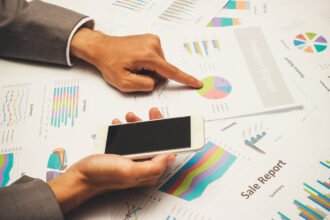 When someone mentions “business analytics” or “business intelligence”—do they mean what you mean? Same question for “data analytics,” “data mining,” “business analysis,” and similar references.
When someone mentions “business analytics” or “business intelligence”—do they mean what you mean? Same question for “data analytics,” “data mining,” “business analysis,” and similar references.
We all have a pretty good idea what “business” means, but after that it gets a little fuzzy . . . So chances are, there are some differences in the way familiar terms are actually used at one company versus another.
How to avoid (or overcome) confusion?
- Find out how a term is being used by a particular company or client, and be consistent with that use.
- Always start a meeting, report, presentation, or any important communication with definitions of key terms.
And to help organize ideas, here are some baseline definitions worth reviewing:
- Business analytics can be defined as the extensive use of data, statistics, and modeling to make or better understand past events and better predict future events. Business analytics may include predictive analytics, business intelligence, human performance management, data visualization, and many other subjects. (BusinessWeek Business Exchange)
- Business intelligence (BI) refers to “computer-based techniques …
 When someone mentions “business analytics” or “business intelligence”—do they mean what you mean? Same question for “data analytics,” “data mining,” “business analysis,” and similar references.
When someone mentions “business analytics” or “business intelligence”—do they mean what you mean? Same question for “data analytics,” “data mining,” “business analysis,” and similar references.
We all have a pretty good idea what “business” means, but after that it gets a little fuzzy . . . So chances are, there are some differences in the way familiar terms are actually used at one company versus another.
How to avoid (or overcome) confusion?
- Find out how a term is being used by a particular company or client, and be consistent with that use.
- Always start a meeting, report, presentation, or any important communication with definitions of key terms.
And to help organize ideas, here are some baseline definitions worth reviewing:
- Business analytics can be defined as the extensive use of data, statistics, and modeling to make or better understand past events and better predict future events. Business analytics may include predictive analytics, business intelligence, human performance management, data visualization, and many other subjects. (BusinessWeek Business Exchange)
- Business intelligence (BI) refers to “computer-based techniques used in spotting, digging out, and analyzing ‘hard’ business data, such as sales revenue by products or departments or associated costs and incomes. Objectives of a BI exercise include (1) understanding of a firm’s internal and external strengths and weaknesses, (2) understanding of the relationship between different data for better decision making, (3) detection of opportunities for innovation, and (4) cost reduction and optimal deployment of resources.” (BusinessDictionary.com)
- Data analytics is the science of examining raw data with the purpose of drawing conclusions about that information. Data analytics is distinguished from data mining by the scope, purpose and focus of the analysis. Data miners sort through huge data sets using sophisticated software to identify undiscovered patterns and establish hidden relationships. Data analytics focuses on inference, the process of deriving a conclusion based solely on what is already known by the researcher. (SearchDataManagement.com)
Cynthia Giles
Spotfire Blogging Team
Image Credit: Microsoft Office Clip Art
Link to original posthttp://spotfireblog.tibco.com/
TIBCO Spotfire’s Business Intelligence Software Blog







